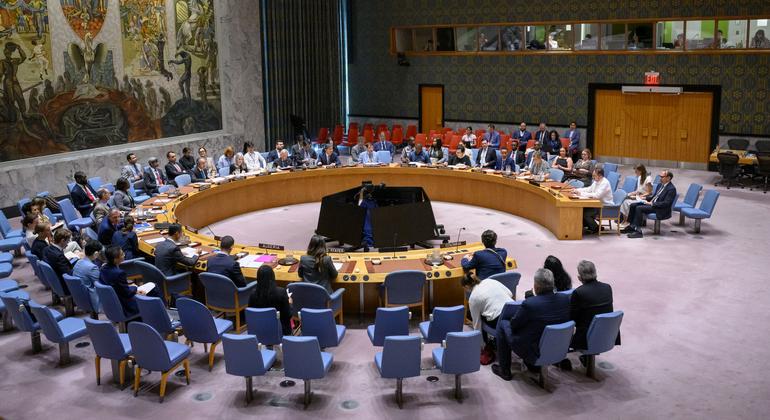Sure! Here’s the translation into American English:
—
In a recent resolution, the UN Security Council has decided to extend the mandate of the United Nations Verification Mission in Colombia for another year, albeit with significant changes to its functions. This modification excludes restorative sanctions from the Special Jurisdiction for Peace (JEP) and oversight of the Ethnic Chapter of the Peace Agreement signed in 2016 between the Colombian government and the FARC.
The new mandate will maintain verification of the chapter on comprehensive rural reform, one of the aspects most lagging in its implementation. Additionally, it will oversee the reintegration of former FARC combatants and security guarantees for communities in areas affected by the conflict.
The resolution, driven by the United Kingdom, was approved with 13 votes in favor, while the United States and Russia abstained, marking a fracture in the unanimous support that had characterized the mission during its eight years of existence. Unlike previous renewals, the drafting of this new document was the subject of weeks of negotiations, during which the United States expressed its disagreement over what it considered an ideological approach that had deviated the mission from its original purpose.
U.S. Ambassador to the UN, Michael Waltz, argued that his country “no longer wants to compromise its position on peace and security,” noting that the mission had exceeded its original mandate. Nevertheless, he reaffirmed the United States’ commitment to peace and justice in Colombia, while critiquing the duration and sustainability of UN missions.
For his part, Russian Ambassador Vasily Nebenzya justified his abstention by claiming that the removal of essential functions could create a vacuum in critical areas such as truth and justice. He emphasized that the mission in Colombia is one of the most cost-effective of the organization.
Several countries, including China, Panama, Algeria, and Guyana, expressed their support for the resolution but stressed the need to maintain functions related to transitional justice and the Ethnic Chapter, accusing the U.S. of pushing for the reduction of the mandate.
Colombian Ambassador to the UN, Leonor Zalabata, reaffirmed the country’s commitment to implementing the Peace Agreement, emphasizing that this is a state obligation that must be upheld despite changes in government. She expressed concern about the elimination of functions related to transitional justice and the ethnic approach, stressing that peace is only viable in an inclusive manner.
Moving forward, the UN Mission will focus on three key areas: the political, economic, and social reintegration of former FARC members; security guarantees for peace signatories; and comprehensive rural reform. These elements are considered essential for advancing toward sustainable peace in Colombia, but the modification of the mandate occurs in a context of rising tensions between Washington and Bogotá, just as the new head of the mission, Miroslav Jenča, takes office.
—
Let me know if you need any further assistance!
via: MiMub in Spanish










